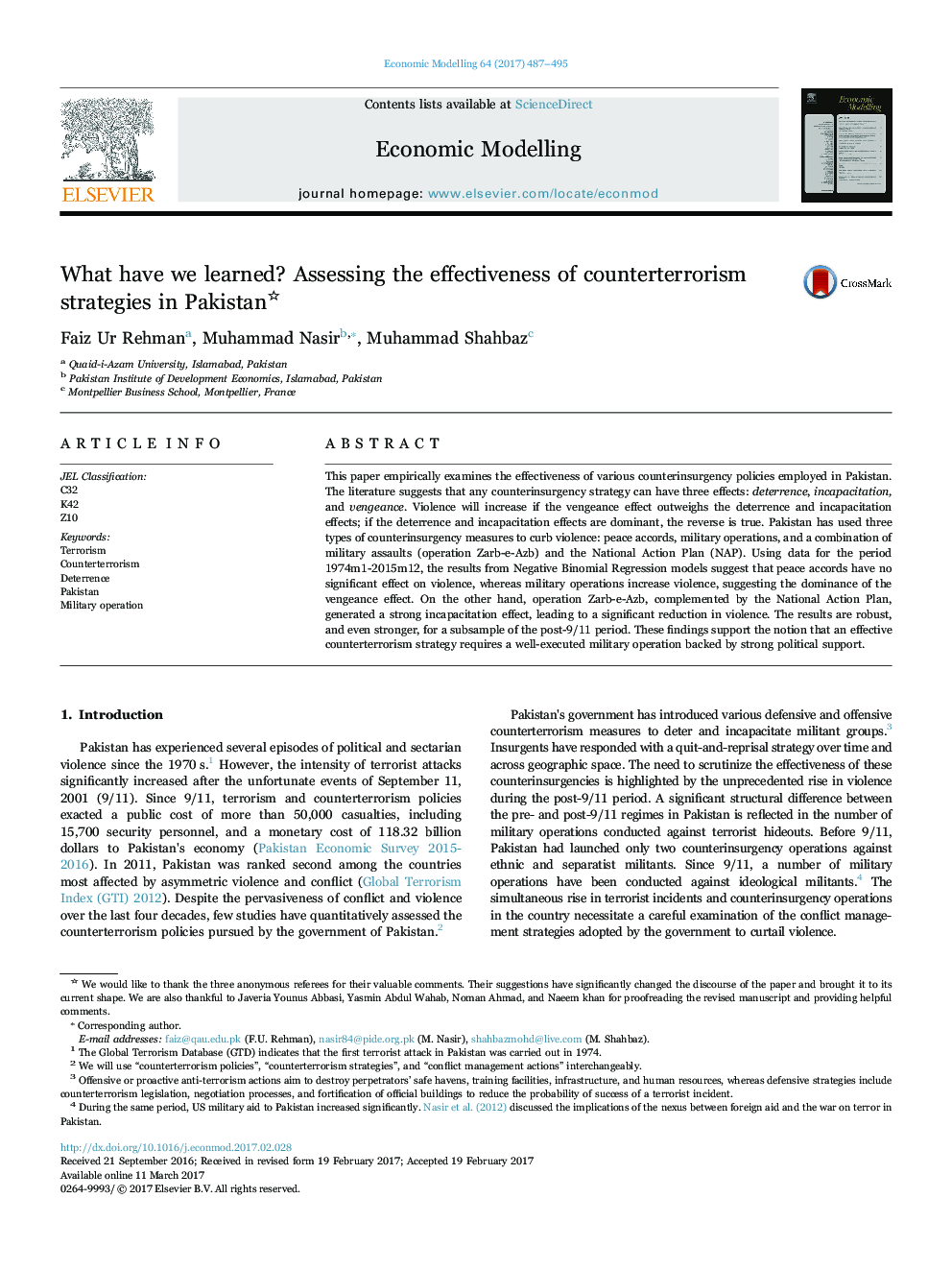| کد مقاله | کد نشریه | سال انتشار | مقاله انگلیسی | نسخه تمام متن |
|---|---|---|---|---|
| 5053167 | 1476505 | 2017 | 9 صفحه PDF | دانلود رایگان |
عنوان انگلیسی مقاله ISI
What have we learned? Assessing the effectiveness of counterterrorism strategies in Pakistan
ترجمه فارسی عنوان
ما آموخته ایم؟ ارزیابی اثربخشی استراتژی های ضد تروریسم در پاکستان
دانلود مقاله + سفارش ترجمه
دانلود مقاله ISI انگلیسی
رایگان برای ایرانیان
کلمات کلیدی
موضوعات مرتبط
علوم انسانی و اجتماعی
اقتصاد، اقتصادسنجی و امور مالی
اقتصاد و اقتصادسنجی
چکیده انگلیسی
This paper empirically examines the effectiveness of various counterinsurgency policies employed in Pakistan. The literature suggests that any counterinsurgency strategy can have three effects: deterrence, incapacitation, and vengeance. Violence will increase if the vengeance effect outweighs the deterrence and incapacitation effects; if the deterrence and incapacitation effects are dominant, the reverse is true. Pakistan has used three types of counterinsurgency measures to curb violence: peace accords, military operations, and a combination of military assaults (operation Zarb-e-Azb) and the National Action Plan (NAP). Using data for the period 1974m1-2015m12, the results from Negative Binomial Regression models suggest that peace accords have no significant effect on violence, whereas military operations increase violence, suggesting the dominance of the vengeance effect. On the other hand, operation Zarb-e-Azb, complemented by the National Action Plan, generated a strong incapacitation effect, leading to a significant reduction in violence. The results are robust, and even stronger, for a subsample of the post-9/11 period. These findings support the notion that an effective counterterrorism strategy requires a well-executed military operation backed by strong political support.
ناشر
Database: Elsevier - ScienceDirect (ساینس دایرکت)
Journal: Economic Modelling - Volume 64, August 2017, Pages 487-495
Journal: Economic Modelling - Volume 64, August 2017, Pages 487-495
نویسندگان
Faiz Ur Rehman, Muhammad Nasir, Muhammad Shahbaz,
